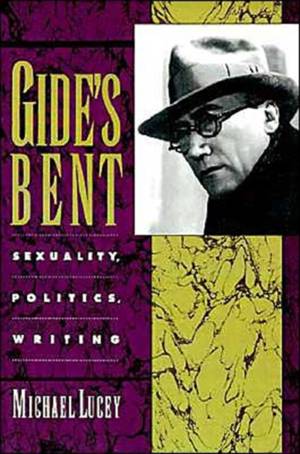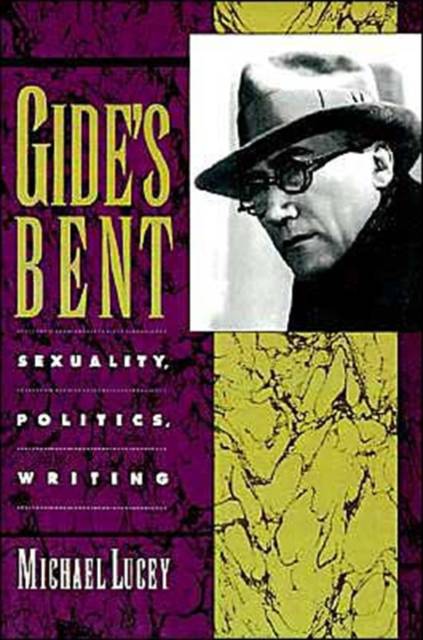
- Afhalen na 1 uur in een winkel met voorraad
- Gratis thuislevering in België vanaf € 30
- Ruim aanbod met 7 miljoen producten
- Afhalen na 1 uur in een winkel met voorraad
- Gratis thuislevering in België vanaf € 30
- Ruim aanbod met 7 miljoen producten
€ 186,95
+ 373 punten
Uitvoering
Omschrijving
In this provocative new book, Michael Lucey examines the unstable convergence of sexual, political, and literary commitments in André Gide's writing of the 1920s and 1930s--the years in which Gide wrote most openly about his homosexuality and participated most actively in left-wing politics. Through close readings of his memoirs, novels, and political tracts, Gide's Bent interrogates both the political content of Gide's ways of reflecting on his homosexuality and the ways his sexuality inflected his political interests.
One of the first modern writers to be "out," Gide used his writings during this period to do more than simply publicize his homosexuality. He also wrote in a way that reveals sexuality itself as an arena that challenges easy distinctions between public and private. His writing thus addresses not only the psychoanalytic, but also the social and even political foundations to the formation of any private sexual subjectivity; it further considers the ways personal, private struggles might be implicated in or lead on to larger public engagements. Gide's Bent follows this complicated writing practice in Gide's psychoanalytically complex novel The Counterfeiters and in his attempt at a feminist narrative, The School for Wives; in his explicit memoir of his early life, If It Dies; in Corydon, his idiosyncratic investigation of pederasty; in his anti-colonialist travel journal, Travels in the Congo; and in his disillusioned Return from the U.S.S.R..
One of the first modern writers to be "out," Gide used his writings during this period to do more than simply publicize his homosexuality. He also wrote in a way that reveals sexuality itself as an arena that challenges easy distinctions between public and private. His writing thus addresses not only the psychoanalytic, but also the social and even political foundations to the formation of any private sexual subjectivity; it further considers the ways personal, private struggles might be implicated in or lead on to larger public engagements. Gide's Bent follows this complicated writing practice in Gide's psychoanalytically complex novel The Counterfeiters and in his attempt at a feminist narrative, The School for Wives; in his explicit memoir of his early life, If It Dies; in Corydon, his idiosyncratic investigation of pederasty; in his anti-colonialist travel journal, Travels in the Congo; and in his disillusioned Return from the U.S.S.R..
Specificaties
Betrokkenen
- Auteur(s):
- Uitgeverij:
Inhoud
- Aantal bladzijden:
- 248
- Taal:
- Engels
- Reeks:
Eigenschappen
- Productcode (EAN):
- 9780195080872
- Verschijningsdatum:
- 8/06/1995
- Uitvoering:
- Paperback
- Formaat:
- Trade paperback (VS)
- Afmetingen:
- 155 mm x 234 mm
- Gewicht:
- 421 g

Alleen bij Standaard Boekhandel
+ 373 punten op je klantenkaart van Standaard Boekhandel
Beoordelingen
We publiceren alleen reviews die voldoen aan de voorwaarden voor reviews. Bekijk onze voorwaarden voor reviews.









